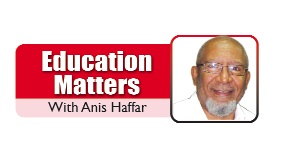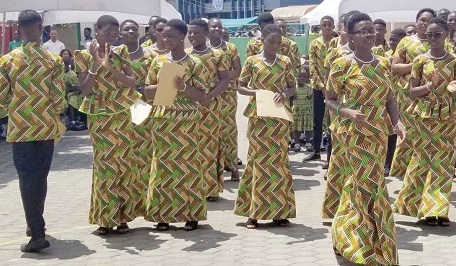
Purposes and types of assessment - Some highlights from the National Pre-Tertiary Education Curriculum (Part 3)
For a start, a curriculum is like a road map, and intended to ask questions such as these: Where do you want to go?
How are you going to get there? And how will you know when you arrive? In other words, a curriculum bridges the distance between hope and fulfilment, and actualises the hope into tangibles of solid achievements or pertinent outcomes.
Advertisement
It was an honour to have been invited as a guest speaker for the graduation and prize-giving day at Additrom School, Adabraka, Accra (29th June, 2019).
Speaking on the theme, “Unearthing the hidden academic potentials in our children: The role of the home and the school,” I noted that a good education must deliver three key outcomes to celebrate a purpose of substance: One, a product to show for the years of learning, to make another person’s life easier; Two, an ability to provide a service to lift the standard of living of humanity; and Three, the ability to provide a solution to a societal problem.
The need for Curricular Assessment
A relevant curriculum is concerned with outcomes reflected in statements of aims; and educators must use those aims to guide the design, implementation, and assessment in the delivery of the educational objectives.
For a developing nation like Ghana, we need to view reality in terms of individual and societal needs.
Both the ends and the means are most appropriate ways to encounter reality; and the ends – even when achieved – become the means for teasing out newer and fresher ends. As noted to the graduands, “Education – like life itself – is a journey, and not a destination”.
Assessment plays a critical role in the successful implementation of any curriculum, as it informs and serves as an effective barometer or a means of communication for the variety of purposes for which it was intended.
First - to the learner - assessment provides a feedback on the effectiveness of their learning process for the desired outcomes. Second - to the teacher - it provides a feedback on the effectiveness of their instruction, or the fitness of the pedagogical approaches used.
Third - to the curriculum designer - it provides a feedback on the quality of the curriculum itself, and whether it serves the purpose for which it was designed in the first place.

Fourth - to the district, regional and national education directorates - assessment gives feedback on the effective use of scarce resources.
[The following assessments are sourced from the National Pre-Tertiary Education Curriculum Framework, and are edited in a few places for the flow.]
Diagnostic Assessment
A Diagnostic Assessment is useful in identifying learners’ current knowledge and skills and ability and helps to clarify misconceptions prior to introducing learners to a new learning area.
The information gathered from a diagnostic assessment is essential for better planning of what to teach next, and how to teach it.
The assessment may take the form of a pre-test of learners’ knowledge. Use of short simple interviews is another way to undertake a diagnostic assessment.
Formative Assessment
Formative assessment provides feedback and information during a teaching and learning process, while teaching is in progress, and while learning is happening.
Formative assessment measures learners’ progress and in a way assesses the teachers’ own progress of delivering the content in a manner that ensures that learning is happening.
Primary formative assessment identifies areas of learning that may need improvement. In order for it to serve this purpose, formative assessments are not normally graded and instead they provide a feedback to enable the learner know that their learning is progressing and to help determine the effectiveness of a lesson.
Assessment for Learning
The use of formative assessment in Ghanaian classrooms should be understood as Assessment for Learning (AfL): an assessment practice that describes approaches within the formative purposes of assessment.
AfL is the process of seeking and interpreting evidence for use by learners and their teachers to decide where the learner is in their learning, where they need to be (the desired goal), and how best to get there.
AfL is one of the powerful methods for improving learning and raising standards.
AfL also refers to all those activities undertaken by teachers and /or by their learners, which provide information to be used as feedback to modify the teaching and learning activities in which they are engaged.
AfL can be achieved through processes for sharing criteria with learners, and for effective questioning and feedback.
Summative Assessment
Summative assessment is made normally but not always at the end of the school year. It is based on the accumulation of the progress and achievements of the learner throughout the year in a given subject, together with any end-of-year tests or examinations.
Summative assessment demonstrates the extent of a learner’s success in meeting the assessment criteria used to gauge the intended learning outcomes and which contributes to the final mark given for the learning area within the content standards. The result of summative assessment is a single end-of-year promotion grade.
Summative assessment captures a record of learning at the end of a period of study. However, formative and summative assessments are not in opposition; they are interrelated and complementary.
The data from formative assessment - supplemented by class tests or tasks - helps to ensure a dependable summative assessment.
Summative assessment is used, one, to quantify achievement; two, to reward achievement; three, to provide data for selection to the next stage in education or employment.
For these reasons the validity and reliability of summative assessment are of great importance. Summative assessment also provides information that has formative/diagnostic value. [To be continued]



